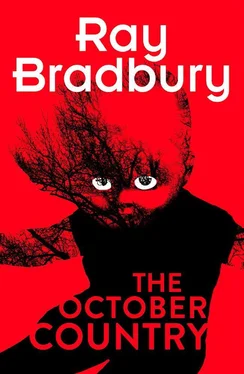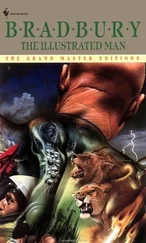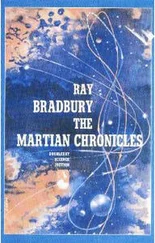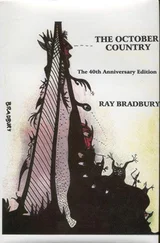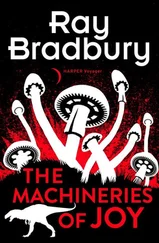1 ...6 7 8 10 11 12 ...15 Sixteen. One by one. A long row of them, crowded together.
She counted them.
One, two, three, four, five, six.
Joseph took one on his plate and ate it.
Six, seven, eight, nine, ten, eleven.
She put her hands on her lap.
Twelve, thirteen, fourteen, fifteen, sixteen. She finished counting.
“I’m not hungry,” she said.
He placed another enchilada before himself. It had an interior clothed in a papyrus of corn tortilla. It was slender and it was one of many he cut and placed in his mouth and she chewed it for him in her mind’s mouth, and squeezed her eyes tight.
“Eh?” he asked.
“Nothing,” she said.
Thirteen enchiladas remained, like tiny bundles, like scrolls.
He ate five more.
“I don’t feel well,” she said.
“Feel better if you ate,” he said.
“No.”
He finished, then opened the sack and took out one of the half-demolished skulls.
“Not here?” she said.
“Why not?” And he put one sugar socket to his lips, chewing. “Not bad,” he said, thinking the taste. He popped in another section of skull. “Not bad at all.”
She looked at the name on the skull he was eating.
Marie, it said.
It was tremendous, the way she helped him pack. In those newsreels you see men leap off diving-boards into pools, only, a moment later when the reel is reversed, to jump back up in airy fantasy to alight once more safe on the diving-board. Now, as Joseph watched, the suits and dresses flew into their boxes and cases, the hats were like birds darting, clapped into round, bright hatboxes, the shoes seemed to run across the floor like mice to leap into valises. The suitcases banged shut, the hasps clicked, the keys turned.
“There!” she cried. “All packed! Oh, Joe, I’m so glad you let me change your mind.”
She started for the door.
“Here, let me help,” he said.
“They’re not heavy,” she said.
“But you never carry suitcases. You never have. I’ll call a boy.”
“Nonsense,” she said, breathless with the weight of the valises.
A boy seized the cases outside the door. “Senora, por favor!”
“Have we forgotten anything?” He looked under the two beds, he went out on the balcony and gazed at the plaza, came in, went to the bathroom, looked in the cabinet and on the washbowl. “Here,” he said, coming out and handing her something. “You forgot your wrist watch.”
“Did I?” She put it on and went out the door.
“I don’t know,” he said. “It’s damn late in the day to be moving out.”
“It’s only three-thirty,” she said. “Only three-thirty.”
“I don’t know,” he said, doubtfully.
He looked around the room, stepped out, closed the door, locked it, went downstairs, jingling the keys.
She was outside in the car already, settled in, her coat folded on her lap, her gloved hands folded on the coat. He came out, supervised the loading of what luggage remained into the trunk receptacle, came to the front door and tapped on the window. She unlocked it and let him in.
“Well, here we go!” She cried with a laugh, her face rosy, her eyes frantically bright. She was leaning forward as if by this movement she might set the car rolling merrily down the hill. “Thank you, darling, for letting me get the refund on the money you paid for our room tonight. I’m sure we’ll like it much better in Guadalajara tonight. Thank you!”
“Yeah,” he said.
Inserting the ignition keys he stepped on the starter.
Nothing happened.
He stepped on the starter again. Her mouth twitched.
“It needs warming,” she said. “It was a cold night last night.”
He tried it again. Nothing.
Marie’s hands tumbled on her lap.
He tried it six more times. “Well,” he said, lying back, ceasing.
“Try it again, next time it’ll work,” she said.
“It’s no use,” he said. “Something’s wrong.”
“Well, you’ve got to try it once more.”
He tried it once more.
“It’ll work, I’m sure,” she said. “Is the ignition on?”
“Is the ignition on,” he said. “Yes, it’s on.”
“It doesn’t look like it’s on,” she said.
“It’s on.” He showed her by twisting the key.
“Now, try it,” she said.
“There,” he said, when nothing happened. “I told you.”
“You’re not doing it right; it almost caught that time,” she cried.
“I’ll wear out the battery, and God knows where you can buy a battery here.”
“Wear it out, then. I’m sure it’ll start next time!”
“Well, if you’re so good, you try it.” He slipped from the car and beckoned her over behind the wheel. “Go ahead!”
She bit her lips and settled behind the wheel. She did things with her hands that were like a little mystic ceremony; with moves of hands and body she was trying to overcome gravity, friction and every other natural law. She patted the starter with her toeless shoe. The car remained solemnly quiet. A little squeak came out of Marie’s tightened lips. She rammed the starter home and there was a clear smell in the air as she fluttered the choke.
“You’ve flooded it,” he said. “Fine! Get back over on your side, will you?”
He got three boys to push and they started the car down-hill. He jumped in to steer. The car rolled swiftly, bumping and rattling. Marie’s face glowed expectantly. “This’ll start it!” she said.
Nothing started. They rolled quietly into the filling station at the bottom of the hill, bumping softly on the cobbles, and stopped by the tanks.
She sat there, saying nothing, and when the attendant came from the station her door was locked, the window up, and he had to come around on the husband’s side to make his query.
The mechanic arose from the car engine, scowled at Joseph and they spoke together in Spanish, quietly.
She rolled the window down and listened.
“What’s he say?” she demanded.
The two men talked on.
“What does he say?” she asked.
The dark mechanic waved at the engine. Joseph nodded and they conversed.
“What’s wrong?” Marie wanted to know.
Joseph frowned over at her. “Wait a moment, will you? I can’t listen to both of you.”
The mechanic took Joseph’s elbow. They said many words.
“What’s he saying now?” she asked.
“He says—” said Joseph, and was lost as the Mexican took him over to the engine and bent him down in earnest discovery.
“How much will it cost?” she cried, out the window, around at their bent backs.
The mechanic spoke to Joseph.
“Fifty pesos,” said Joseph.
“How long will it take?” cried his wife.
Joseph asked the mechanic. The man shrugged and they argued for five minutes.
“How long will it take?” said Marie.
The discussion continued.
The sun went down the sky. She looked at the sun upon the trees that stood high by the cemetery yard. The shadows rose and rose until the valley was enclosed and only the sky was clear and untouched and blue.
“Two days, maybe three,” said Joseph, turning to Marie.
“Two days! Can’t he fix it so we can just go on to the next town and have the rest done there?”
Joseph asked the man. The man replied.
Joseph said to his wife, “No, he’ll have to do the entire job.”
“Why, that’s silly, it’s so silly, he doesn’t either, he doesn’t really have to do it all, you tell him that, Joe, tell him that, he can hurry and fix it—”
The two men ignored her. They were talking earnestly again.
This time it was all in very slow motion. The unpacking of the suitcases. He did his own, she left hers by the door.
“I don’t need anything,” she said, leaving it locked.
Читать дальше
